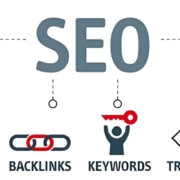5 Reasons Every Business Needs a Local SEO Houston Strategy
In today’s digital-driven marketplace, local SEO Houston (Search Engine Optimization) is essential for any business looking to succeed in Houston’s competitive environment. With more consumers using search engines to find services and products nearby, a strong local SEO strategy ensures your business is easily found by potential customers in your area. Whether you’re a small local shop or a larger enterprise, optimizing for local search results can significantly boost your visibility and drive more traffic to your business.
Let’s check out the compelling reasons why every business needs a local SEO Houston strategy:
Boost Visibility in Local Search Results
When people search for products or services, they often include location-specific terms such as “near me” or “Houston.” Local SEO helps your business appear at the top of these search results, making it easier for nearby customers to find you.
For instance, if you own a restaurant in downtown Houston, optimizing your site for “best restaurants in Houston” or “Houston BBQ” will increase the likelihood of your business showing up in local search results, driving more customers to your location.
Key takeaway: Local SEO helps your business rank higher in location-specific searches, directly increasing foot traffic and sales.
Improve Credibility with Google My Business
A well-optimized Google My Business (GMB) profile plays a vital role in your local SEO strategy. This free tool helps your business appear in local searches and Google Maps, showing crucial details such as hours, address, and customer reviews.
A well-maintained GMB listing builds trust with potential customers, helping them make informed decisions about choosing your business. A complete profile with positive reviews can make your business appear more credible and reliable, encouraging local customers to engage.
Key takeaway: Google My Business enhances your business’s credibility and visibility, attracting more local customers.
Attract Relevant Local Traffic
Unlike general SEO, which can drive global traffic, local Houston SEO focuses on reaching potential customers within your area. This is particularly important for Houston businesses that rely on local customers. Local SEO targets people who are most likely to visit your store, call your service, or request information because they are nearby and searching for what you offer.
For example, a Houston plumbing company would want to rank for keywords like “plumber in Houston” or “emergency plumber near me,” attracting highly relevant traffic that’s more likely to convert into paying customers.
Key takeaway: Local SEO helps bring in customers who are searching for businesses near them, making them more likely to convert.
Capture Mobile Search Users
With the rise of mobile searches, local SEO is even more important. Studies show that a large percentage of local searches happen on mobile devices, especially when people are looking for nearby services on the go. Features like click-to-call buttons and mobile-friendly websites are critical for converting these searches into real business.
Whether it’s someone looking for a nearby restaurant or a local auto repair shop, having your business optimized for mobile local searches is a must to capture this growing segment of consumers.
Key takeaway: Local SEO ensures your business is easily found by mobile users, turning searchers into customers.
Stay Ahead of Local Competitors
Houston is home to thousands of businesses, and the competition can be fierce. A well-executed local SEO strategy can give you an edge over competitors who aren’t investing in their online visibility. By targeting the right local keywords and building a solid online presence, you’ll ensure that your business ranks higher in local searches than your competitors.
Even smaller businesses can outshine larger competitors by focusing on local SEO, driving more local traffic and gaining a competitive advantage in the marketplace.
Key takeaway: Local SEO helps you outperform competitors by targeting your specific market and community.
Conclusion
Local SEO Houston is a game-changer for businesses. By optimizing for local searches, you increase your chances of being found by customers right in your community. From boosting visibility and credibility to attracting more relevant traffic and staying ahead of the competition, local SEO is essential for growth and long-term success.
Now’s the time to invest in a solid local SEO strategy and watch your business thrive in Houston’s vibrant market.












 Small businesses in Houston need a modern, easy-to-use website to stay ahead. Since people look online for things to buy, a good website is vital for getting and keeping customers.
Small businesses in Houston need a modern, easy-to-use website to stay ahead. Since people look online for things to buy, a good website is vital for getting and keeping customers.

 LOCAL WEBSITE DESIGNERS & HOUSTON SEO EXPERTS – CALL US
LOCAL WEBSITE DESIGNERS & HOUSTON SEO EXPERTS – CALL US
